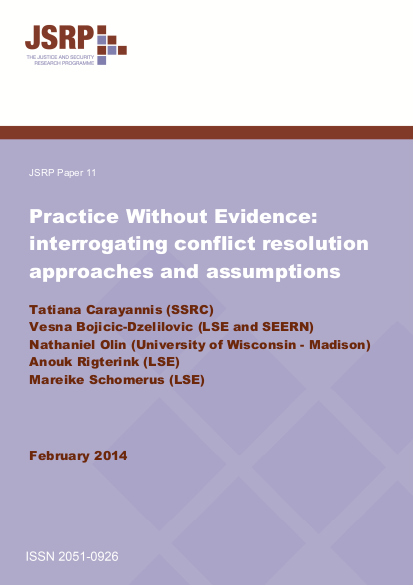
This paper reviews the evidence base that underpins contemporary approaches to the resolution of violent conflict, in an effort to improve the lives of conflict-affected populations. By means of a systematic literature review the paper explores academic work as well as grey literature that engages with the experiences of the “end-users” of conflict resolution efforts. It finds that current approaches to conflict resolution are often based on weak evidence and normative objectives, and make problematic assumptions with regard to the actors and conflict structures involved, and to the conflict resolution strategies employed. It concludes by highlighting the need to strengthen the evidence base of conflict research if conflict resolution practice is to be brought into line with empirical realities.